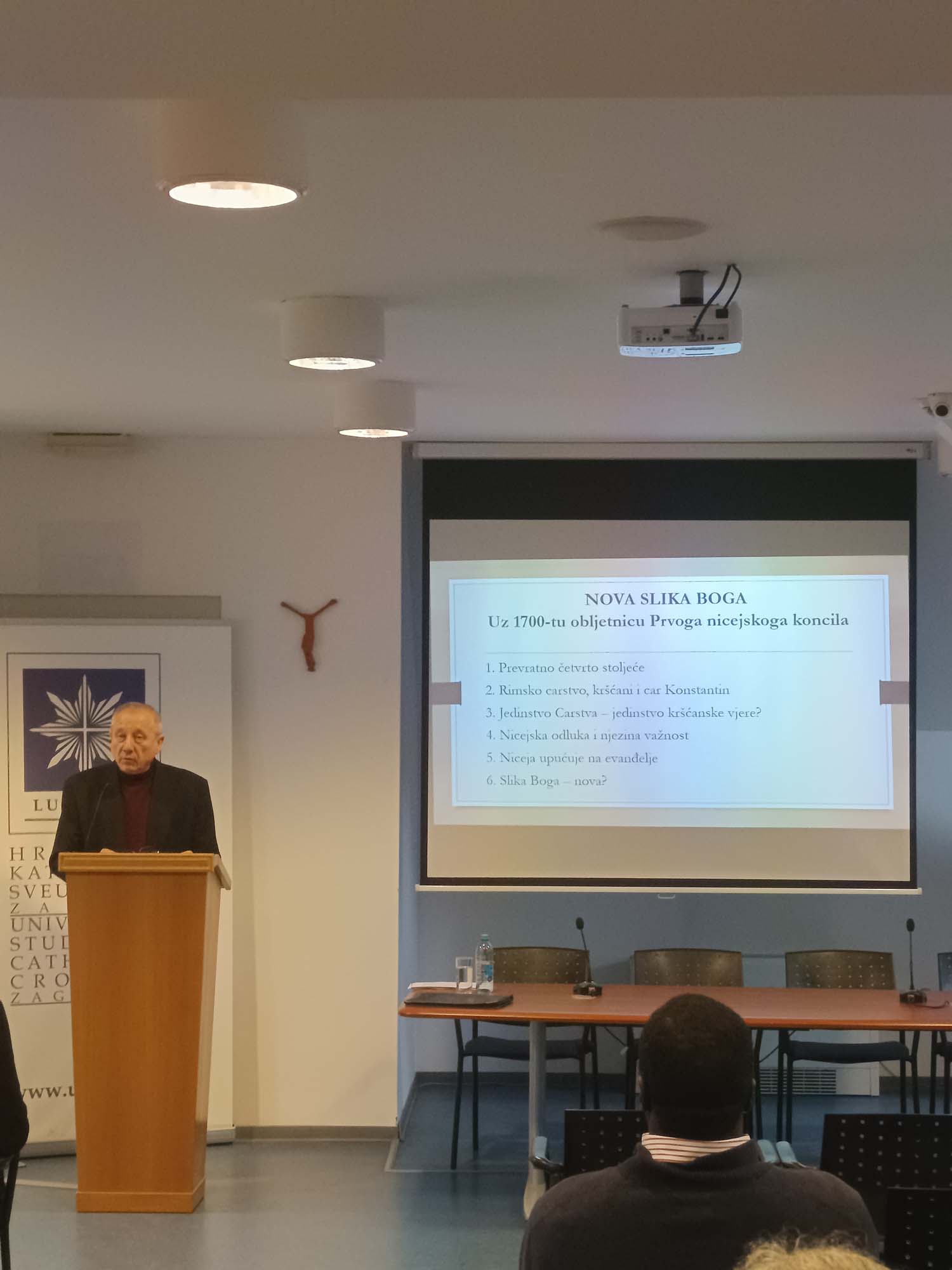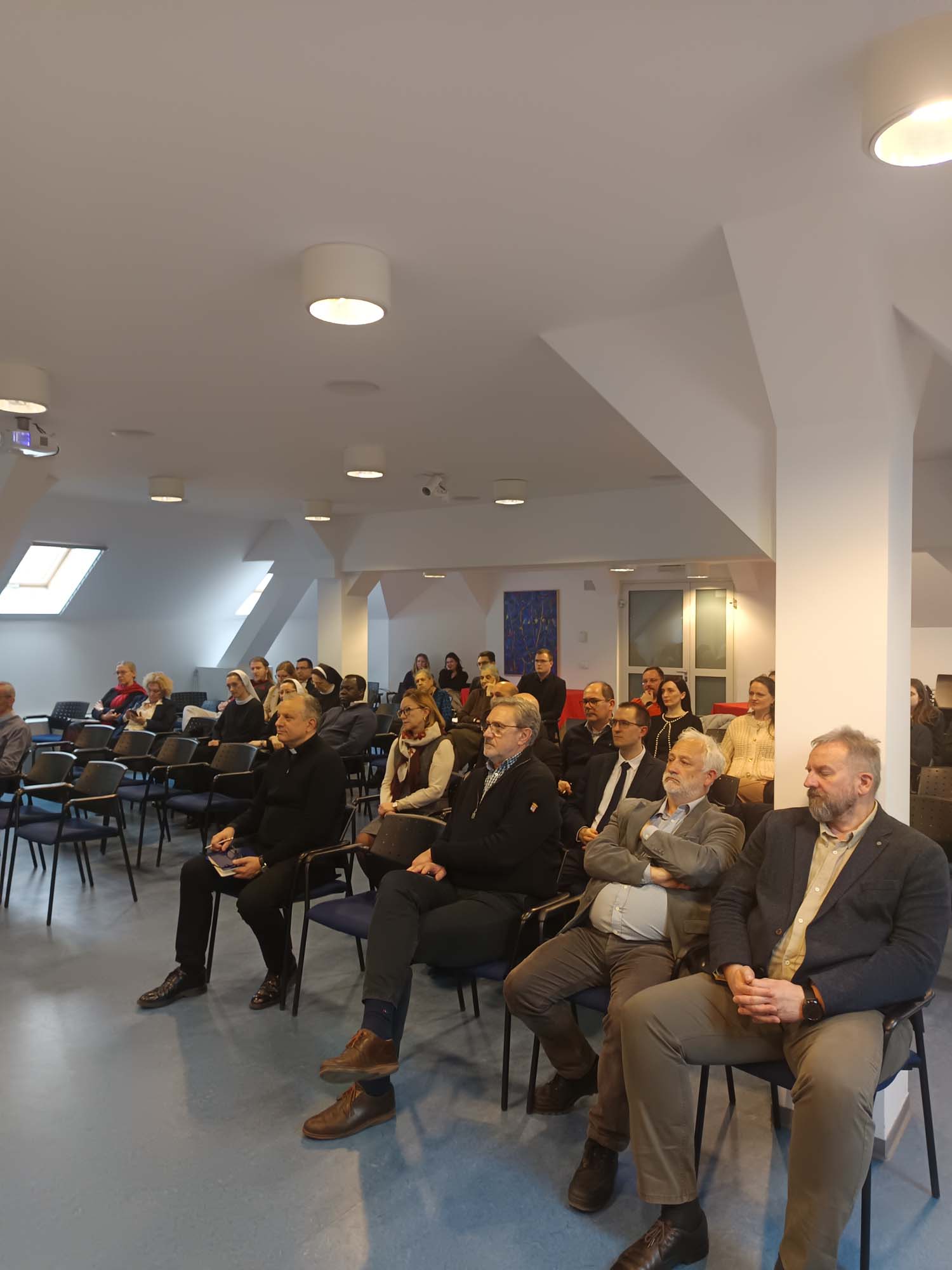Share
The 1700th anniversary of the First Council of Nicaea was marked with a lecture by Prof. Kušar
On the occasion of the 1700th anniversary of the First Council of Nicaea, on Tuesday, April 1, 2025, in the hall of Blessed Alojzije Card. Stepinac at the Catholic University of Croatia, a lecture by Prof. Stjepan Kušar, "A New Image of God", was held. This significant jubilee was marked in an academic atmosphere, with the presence of numerous students, teachers and professors from our University, the Faculty of Theology of University of Zagreb, and other distinguished guests.

The audience was addressed by the rector of the Catholic University of Croatia, Prof. Željko Tanjić, who welcomed the gathering and highlighted the importance of the First Council of Nicaea, introducing the lecturer as one of the best experts on this topic in our region. The meeting was moderated by Assoc. Prof. Zoran Turza, coordinator of the University Chair of Theology.

In his lecture, Prof. Kušar thematically addressed key aspects of the historical and theological context of the fourth century – a time marked by profound upheavals, including the persecution of Christians, the recognition of Christianity as a permitted religion, and ultimately its elevation to the level of the official religion of the Roman Empire. The lecturer emphasized that theological debates at that time were very lively and permeated all levels of society. The lecturer paid particular attention to understanding the importance of the role of expressing duty to the gods (religio), the emperor (imperium), and respecting the customs of ancestors (mos maiorum). Within such relations, Christianity emerged as a religion that transcended these duties. In order to resolve the theological debates that were most instigated by Arius, Emperor Constantine convened the First Council of Nicaea in 325, at which a new image of God was presented – for those who were not familiar with Christianity.
The lecture sparked a lively and meaningful discussion among those present, raising numerous questions about the significance of the council for today, the role of theology in the public sphere, the importance of theological discussions, and the comparison of challenging ecclesiastical and political events from the early 4th century with events that mark our time.
This anniversary and academic meeting reminded us of the importance of the theological discussions of the 4th century, but also of the necessity of constantly deepening theological reflection in the context of current social and cultural challenges.





